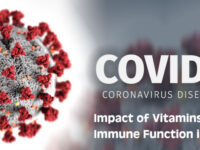1. Eat and Drink Slowly
Most of us eat on the go these days as daily commitments leave little time for a long meal. Another problem is being distracted while eating a meal, like watching TV while eating. As a result we tend to take too large bites, swallow before chewing thoroughly and drink too fast while taking in a lot of air. It this eating and drinking behavior that plays a major role in indigestion. Instead take small bites and chew slowly. Ensure that your food is thoroughly chewed before you swallow. The same applies to drinking beverages. Take small sips rather than large gulps.
2. Have More Smaller Meals
It is not just eating and drinking too fast but also the quantity that we eat per meal which can be a problem. The convenience of modern life coupled with a fast food culture where bigger is better means that meals are often larger than what we should be eating. Furthermore the time constraints in life means we would rather stock up extra during traditional meal times. But there is no need to starve yourself. Rather eat smaller meals several times in a day than the three large meals – 3 medium-sized meals and 2 small snacks.
3. Avoid Trigger Foods and Drinks
Some foods and drinks are more likely to trigger indigestion. Typically spicy foods, heavily processed foods and fatty foods are more of a problem. Caffeinated beverages and alcoholic drinks are other known triggers of indigestion. It is not always necessary to avoid these foods and drinks altogether. Consuming it in moderation and occasionally may not pose as much a problem. However, if even small amounts tend to trigger indigestion then you should avoid it completely.
4. Exercise regularly & avoid stress
In addition to helping you maintain a healthy lifestyle, exercise can also help with digestion. A scientific study published in Clinical Gastroenterology and Hepatology journal has shown that physical activity can actually help reduce many digestive problems. In this study, scientists found a link between obesity, lack of exercise, stomach pain, diarrhea, and symptoms of irritable bowel syndrome.
5. Sit Up Straight Or Take A Stroll
Lying down or sleeping after a meal, especially a large meal, is often a problem when it comes to indigestion. Rather sit up straight or move around to help with digestion. Make a habit of walking around after eating and even if you cannot get a little exercise in this way, stand up and do the dishes or other chores. But do not exercise vigorously after a meal. This can actually cause indigestion. Try to avoid heavy meals as it can make you feel sleepy. Similarly you should not eat too late in the night or you may be forced to go to bed without waiting for your food to digest.
6. Stay Calm And Talk Less
Getting agitated when eating or talking excessively during meal time can also be a problem. You may end up eating faster than you normally would and swallowing air that can lead to indigestion. Rather sit down to a quiet meal. Listen more than you talk and avoid topics that may end up stressing you out. Try relaxing even after a meal. You do not have to sit still but avoid partaking in any activity that may stress you out. Try some deep breathing and meditation even when you have indigestion.
7. Loosen Your Belt Or Clothing
It seems quite natural to undo some of your clothing when you are suffering with indigestion. Tight clothing or a tight belt increases the pressure on your abdomen. You may be able to manage with the pressure during the course of the day but after a meal in can contribute to acid reflux and indigestion. Although it is not considered appropriate to do it in public, loosening some of your clothing can be helpful. It can be a matter of undoing a few buttons of your shirt or a notch or two off your belt.
8. Take OTC Indigestion Medication
Simple OTC remedies for indigestion may help you belch to release some of the trapped air in the stomach, neutralize your stomach acid or form a foam on top of your stomach contents in order to prevent the acid from irritating your foodpipe. These OTC medication can be purchased from most convenience stores and supermarkets and are very effective for the occasional episode of indigestion. However, if you are experiencing severe or recurrent indigestion then your doctor may prescribe medication to suppress your stomach acid or speed up emptying of the stomach.
9. Don’t overuse antacids
Acids in the stomach help the body digest food — however, in some cases, these acids can “reflux” or back up into the esophagus, thus causing the burning sensation of indigestion.
When this happens, men often reach for antacids — usually an over-the-counter type that works by neutralizing stomach acids. However, when overused, antacids can cause the stomach to lose its function and leaves it vulnerable to bacterial infections.
10. Take digestive enzyme supplements
Digestive enzymes derived from plant sources can help promote good digestion and even enhance nutrient absorption. In cases where men are lacking adequate amounts of digestive enzymes due to poor diet and health, taking enzyme supplements can reduce the symptoms of indigestion and upset stomach. Even in healthy men, taking extra enzymes can help maintain digestive health.
11. Enjoy eating again
Digestive enzymes aren’t silver bullets and indigestion can certainly be a symptom of a much more serious digestive disease, such as Crohn’s disease, acid reflux or GERD, and irritable bowel syndrome.
Sources
http://www.foxnews.com/health/2011/04/10/5-tips-help-prevent-indigestion.html
http://www.askmen.com/sports/health_100/134b_mens_health_a.html
http://www.onlineholistichealth.net/tips-for-indigestion-prevention-and-relief.html
http://www.steptohealth.com














